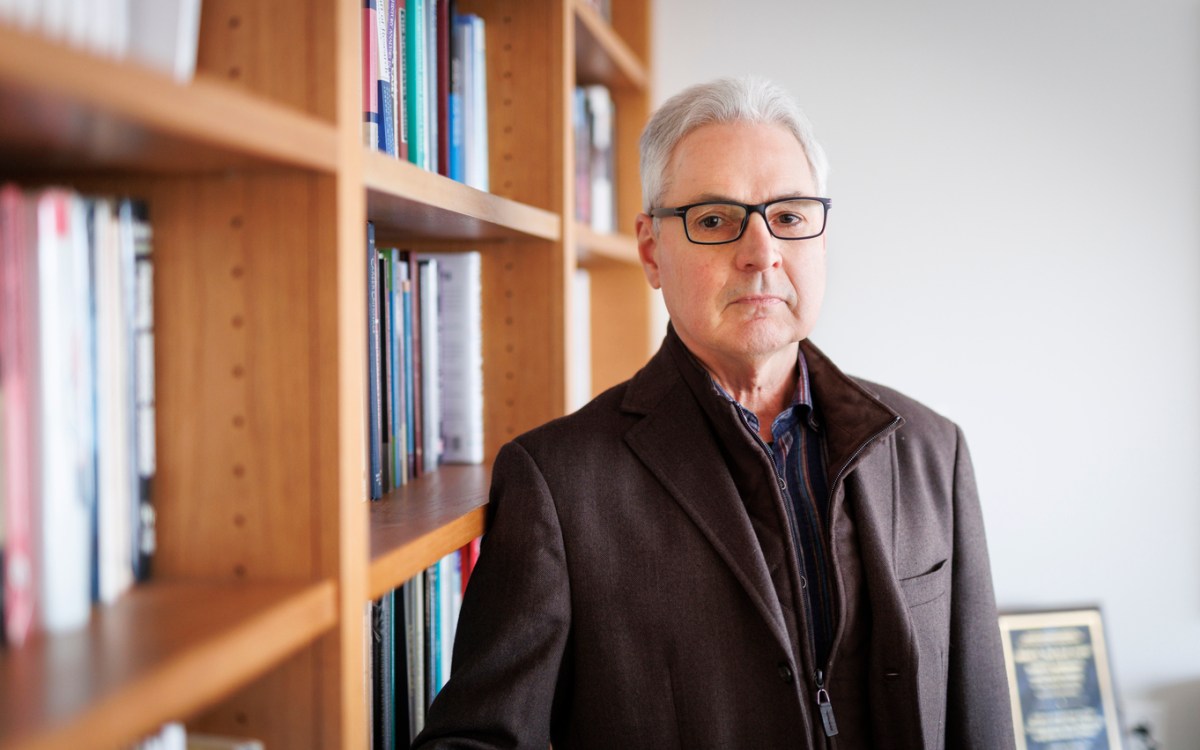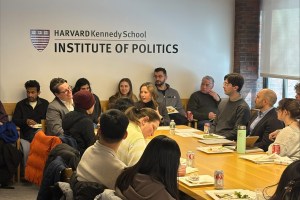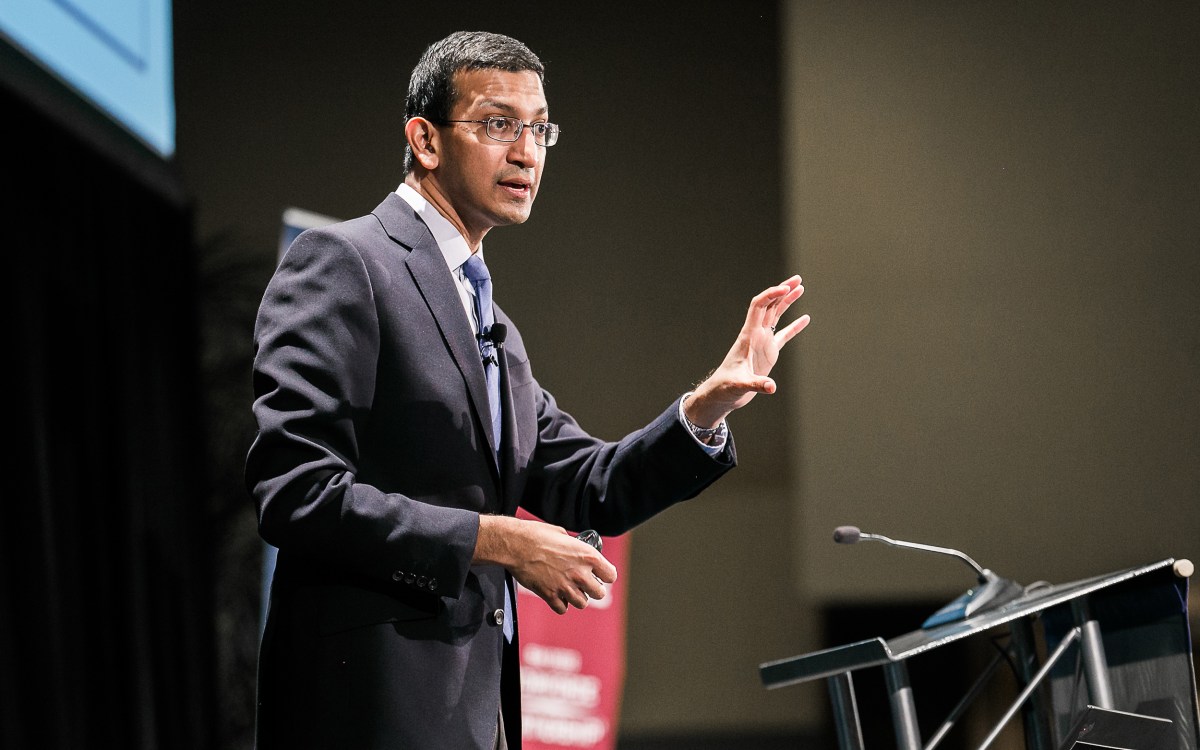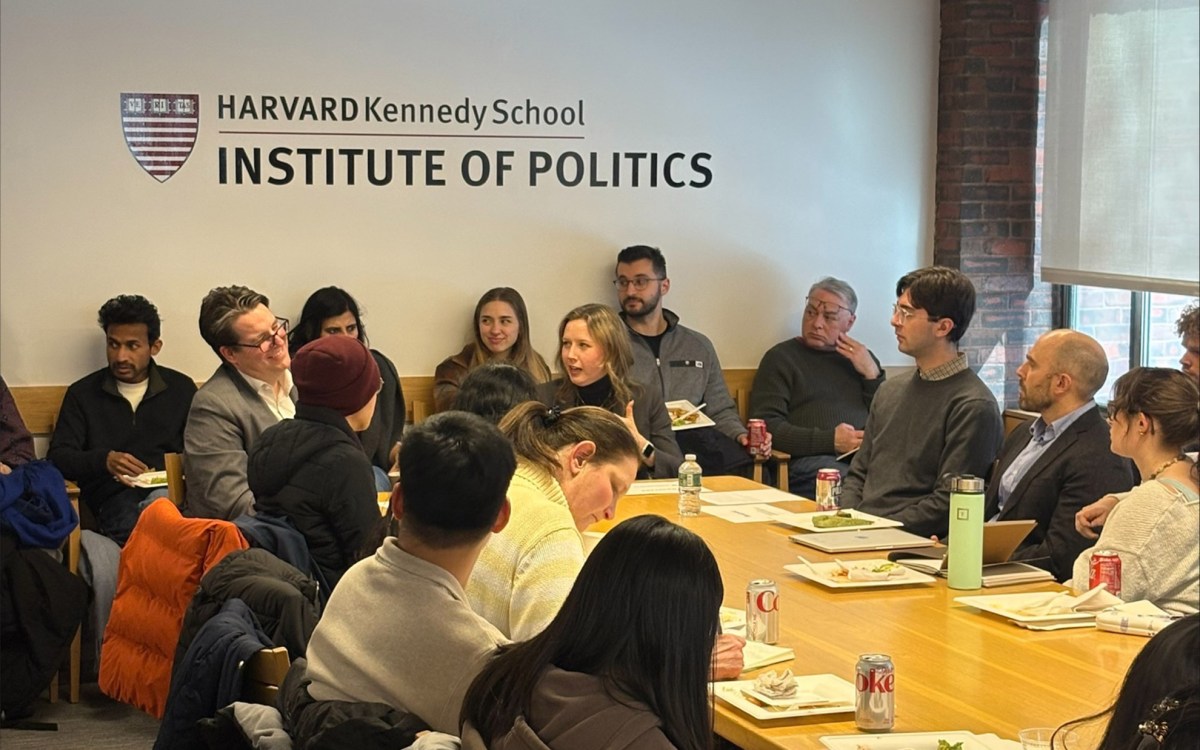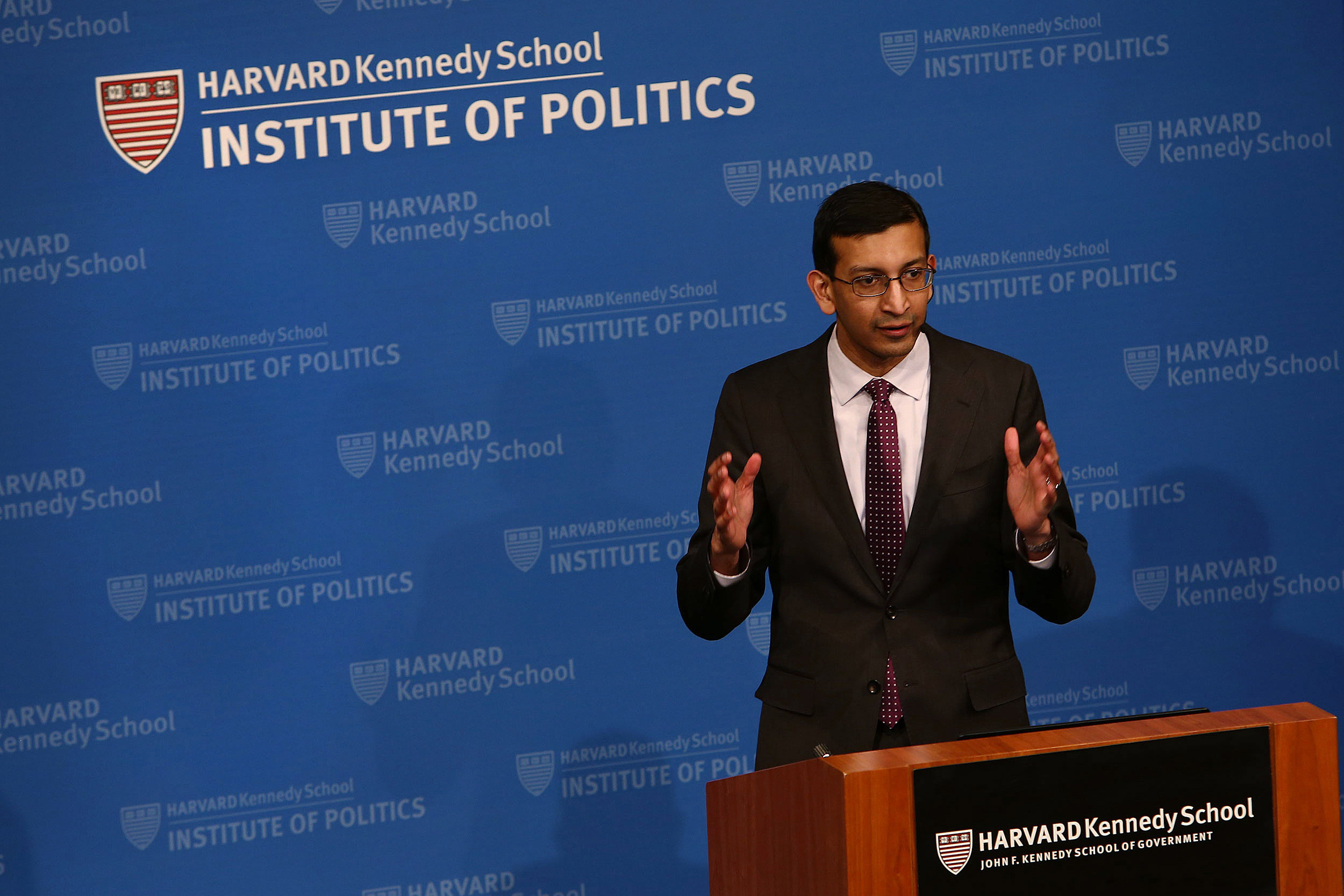
“America no longer feels like a place where you can get ahead,” said Harvard economics professor Raj Chetty at Wednesday’s John F. Kennedy Jr. Forum.
Courtesy of IOP
Rebooting the land of opportunity
Raj Chetty says big data suggests answers for slipping standard of living
America is supposed to be the land of opportunity, but that reputation has frayed in recent decades. Raj Chetty is looking for common-sense ways to restore that fundamental hope.
Speaking at a John F. Kennedy Jr. Forum on Wednesday evening, Chetty, Harvard’s William A. Ackman Professor of Public Economics, lasered in on the decline of the oft-cited national promise, and showed a way forward through mining big data.
The American dream has always been about improvement. The idea that “through hard work, any child could move up and earn more than their parent” is at its core, said Chetty, who also serves as director of Opportunity Insights, a team of researchers and policy analysts focused on this problem. However, in recent decades that dream has faded.
Comparing base family income levels with those that followed 30 years later, he showed that Americans born in the 1940s and ’50s were “virtually guaranteed” to do better than their parents, with 92 percent showing improved incomes. However, by the 1980s, that generational improvement was “a coin toss,” with only roughly half of young adults earning more than their parents.
“This underlies a lot of the political and social frustration” in the land, said Chetty. “America no longer feels like a place where you can get ahead.”
To understand this trend, Chetty and his team analyzed factors that play into success. What they found was that location — often by block or neighborhood — is extremely predictive of how well children eventually do. That success, they found, could be influenced by a move almost any time in a child’s life, through the teens, although earlier moves had the greatest impact. This finding carried through over race and gender, although populations self-described as white uniformly did better nationally than African-Americans.
These observations suggest a number possible solutions, he said. The first would be place-based: Move families at the poverty level to higher-achieving areas. This may sound untenable, but in many cases it can be achieved at relatively little cost, he said. As an example, Chetty looked at Seattle, where the Normandy Park neighborhood, which has significantly better outcomes than average, has rents at roughly the same level as the Central District, a neighborhood with much poorer outcomes.
Pilot studies, such as Creating Moves to Opportunities, show ways to help lower-income families relocate to such better-performing areas. That study provided information to tenants. It recruited landlords, who might otherwise be hesitant about accepting housing vouchers or other forms of assistance, and it provided the kind of housing-search assistance that a broker might give to a middle-income family, helping it find its next, better home. These services, the study found, cost only about 2 to 3 percent more than basic housing assistance, which simply provides vouchers.
A more encompassing solution, Chetty acknowledged, would be to improve lower-achievement areas. Again harnessing big data, Chetty pinpointed four key traits that affect an area’s achievement level: a lower poverty rate, more stable family structure, greater social capital (i.e., groups or institutions, such as churches, “where someone else might help you out if you’re not doing well”), and better schools.
“This doesn’t tell you exactly what you should do, but it shows what you should focus on,” said Chetty. Rather than simply targeting poverty, he said, the data suggests a multifaceted approach targeting “family stability, early childhood education, social capital via mentorship, college and career readiness, along with affordable housing.”
Stressing the importance of this work, Chetty said that improving economic opportunity for all is not only more fair and just, it is essential to national health. Graphing the rate of patent holders — inventors and innovators — in terms of both their family incomes and their early math scores, he highlighted the importance of both factors in their success. If we do not raise up the geniuses among us, he said, we face the “phenomenon of ‘lost Einsteins.’”
“If women, minorities, and kids from low-income families were to invent at the same rate as high-income men, we’d have four times as many inventions as we do,” he said. In America, a country that has long defined itself as a land of innovation as well as a land of opportunity, “this has implications for the economy as a whole.”
